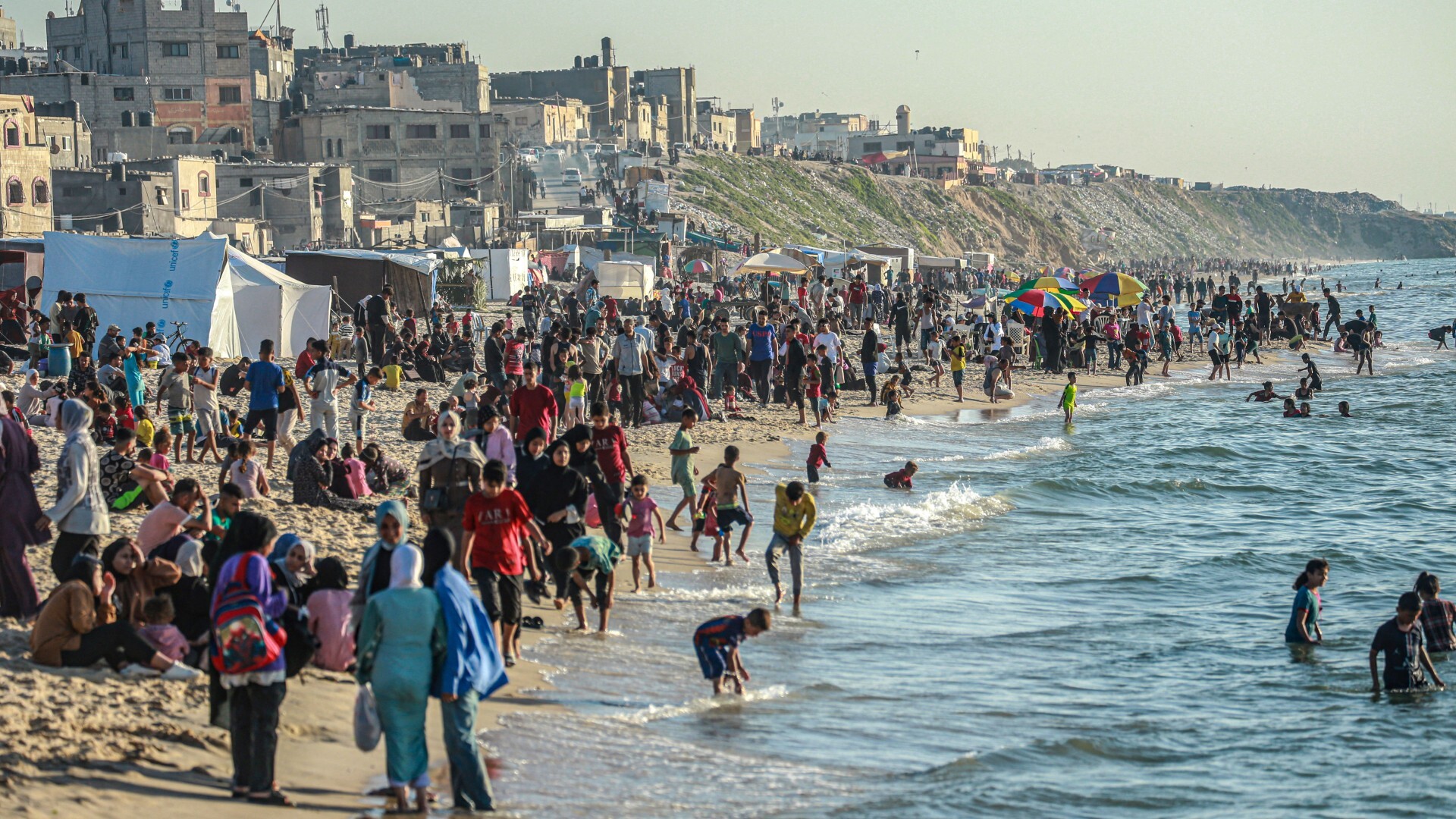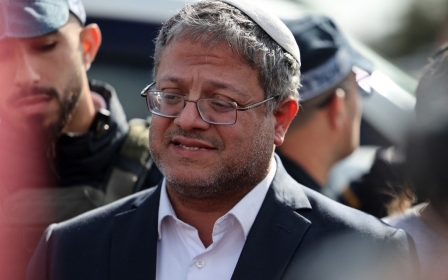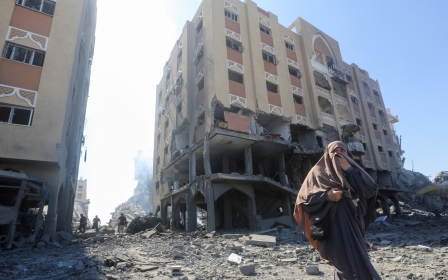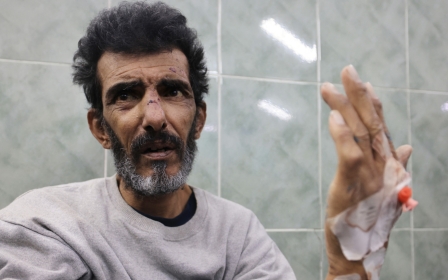War on Gaza: Israelis enraged as Palestinians seek respite from war and heat at beach
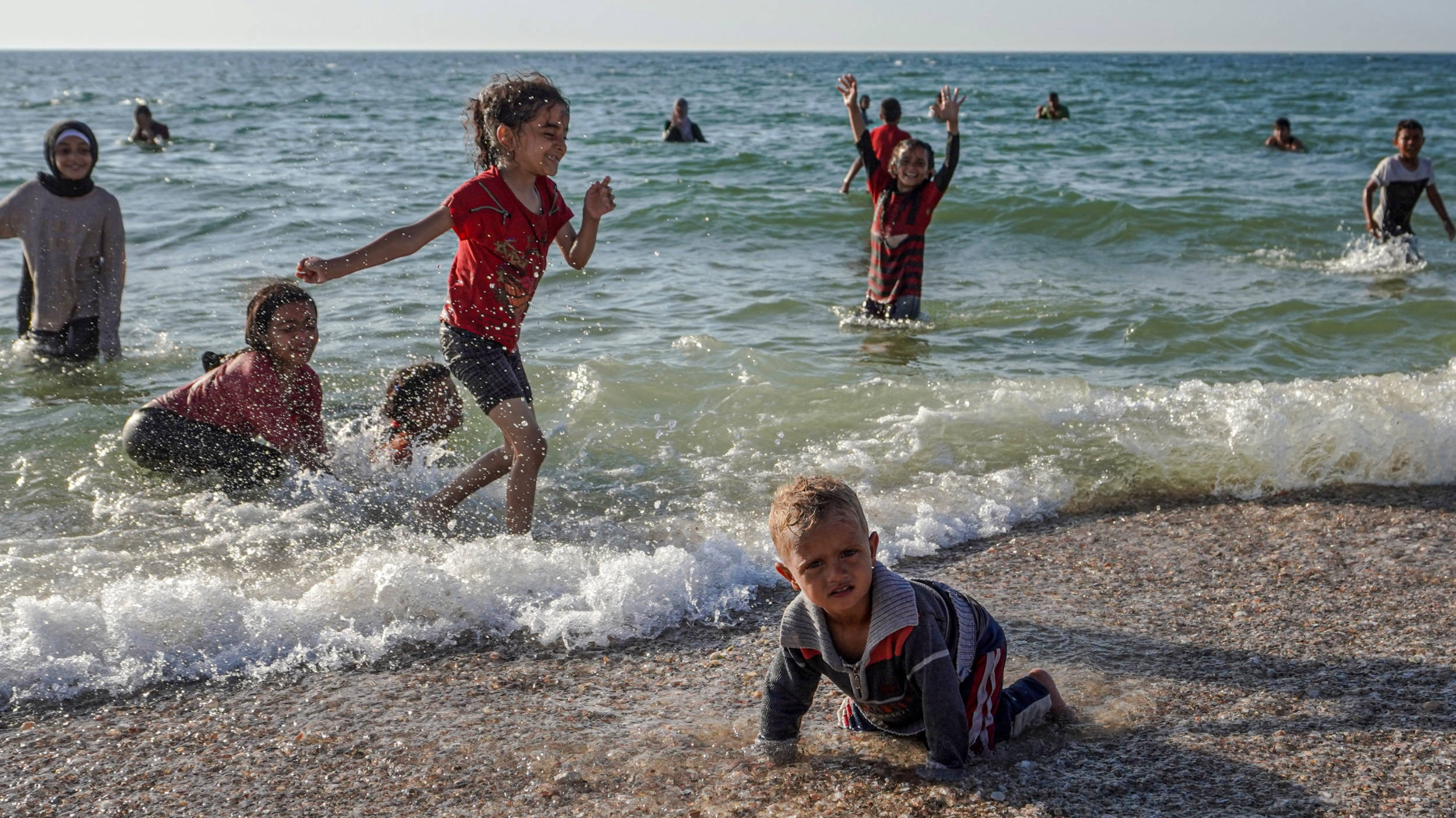
As temperatures soared in Gaza, Marah Helles, 17, joined scores of Palestinians by the sea, cooling off and finding solace and distraction from their daily reality.
"As a family, coming to the beach was our favourite trip [before the war]. I used to enjoy coming here so much. But now, I can't feel anything," Helles told Middle East Eye.
Helles, a high school student from Gaza City, has been displaced countless times since war broke out on 7 October.
Israeli forces bombed her home last year, forcing Helles to flee to Rafah and then central Gaza. Now she's sheltering in an overcrowded school in Deir al-Balah, central Gaza, in dire conditions.
She comes to the beach nearby to briefly take her mind off the devastation of Israel's war.
"We come out here to release the depression and sadness we feel. We try to cheer ourselves up. We lost loved ones. I lost my uncle," she said.
"I'm not here enjoying myself. I will not have joy until I return to my home."
On Wednesday, a report published by Israel's Channel 13 showed footage of Palestinians at the beach in Deir al-Balah, as temperatures surpassed 32C.
The footage was criticised online by Israelis, including journalists and ministers, some of whom saw it as evidence that Israel's war on Gaza had not gone far enough.
Far-right Israeli National Security Minister Itamar Ben Gvir has suggested that Israel's war cabinet should be "dismantled", partly due to the scenes of Palestinians at the beach.
Ben Gvir wrote on X that in Gaza there were "thousands bathing at the beach", while in northern Israel, Lebanon's Hezbollah "took an aggressive step against us that today cost us wounded fighters".
"It's time to dismantle the [war] cabinet, stop the policy of inclusion and proportionality."
He said that as long as the policies of the current war cabinet continued, "absolute victory" - which has become a slogan of Israel's war - was getting "further and further away".
Israeli commentators rage at beach images
In a post under the heading "absolute victory", Channel 13 journalist Almog Boker wrote: "This picture makes my body ache. While Zikim beach [in southern Israel, near Gaza] ... is declared a closed military area and we the residents cannot approach it without military escort, on the other side of the fence - the Gazans spend time on the beach and bathe in the sea as if there is no war."
One pro-Israeli commentator suggested people in Gaza "frolicking and having fun on the beach" showed that images of Palestinian suffering were "bullshit".
Another questioned: "Is this what 'genocide' looks like?"
'People come here to express their worries to the sea. Here, we are both happy and sad'
- Nahed Shabat, journalist
But far from frolicking and having fun, displaced Palestinians took to the beach due to a lack of space, clean running water and electricity to stay cool during the hot weather.
"We face overcrowding, health and economic issues as well as lack of food, so the beach is the only place we have to release the stress we endure," Nahed Shabat, a journalist and activist, told MEE.
"People come here to express their worries to the sea."
Shabat is originally from Beit Hanoun in northern Gaza, but is currently displaced in Deir al-Balah.
He said that as summer approaches, shelters and makeshift camps are getting increasingly hot. With parks and other open spaces in Gaza destroyed by Israeli bombardment, the beach is one of the only places left to go to.
"Here, we are both happy and sad. Happy to get a respite at the beach, but sad for our martyrs who have fallen," he said.
"But at the end of the day, this is our land. We will not leave it."
Middle East Eye propose une couverture et une analyse indépendantes et incomparables du Moyen-Orient, de l’Afrique du Nord et d’autres régions du monde. Pour en savoir plus sur la reprise de ce contenu et les frais qui s’appliquent, veuillez remplir ce formulaire [en anglais]. Pour en savoir plus sur MEE, cliquez ici [en anglais].


